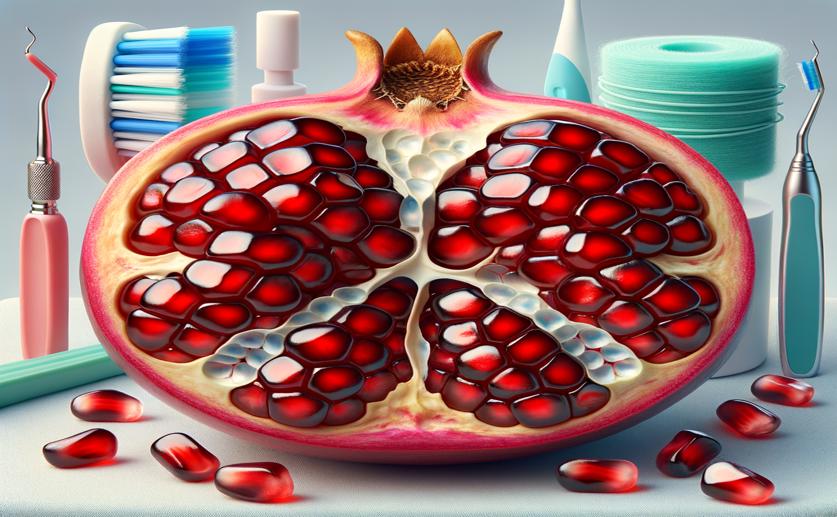
Pomegranate in Dental Care: Treating Gingivitis and Fighting Bacteria
Jim Crocker
18th August, 2024

Image Source: Natural Science News, 2024
Key Findings
- Researchers at the Universidade Federal de Pernambuco found that pomegranate mouthwashes are as effective as chlorhexidine in treating gingivitis
- Pomegranate extracts have antibacterial properties, particularly against bacteria involved in gum diseases, supporting their traditional use for oral health
- Pomegranate extracts are safe and do not have the side effects associated with synthetic mouthwashes, making them a viable natural alternative
References
Main Study
1) Dental applications of Punica granatum L. in the treatment of gingivitis: A review of ethnomedicinal uses, randomized clinical trials, and antibacterial potential against Porphyromonas gingivalis.
Published 15th August, 2024
https://doi.org/10.1016/j.jep.2024.118701
Related Studies
2) Microbial signatures of health, gingivitis, and periodontitis.
3) Use of traditional plants in management of halitosis in a Moroccan population.
4) Effect of the Mediterranean diet on gingivitis: A randomized controlled trial.
5) Pomegranate extract inhibits Staphylococcus aureus growth and subsequent enterotoxin production.
Journal: Journal of ethnopharmacology, Issue: Vol 96, Issue 1-2, Jan 2005



 18th August, 2024 | Jenn Hoskins
18th August, 2024 | Jenn Hoskins